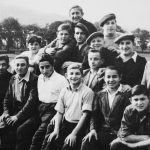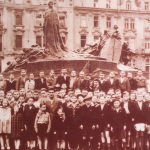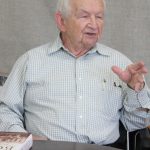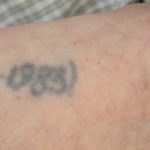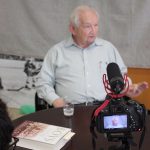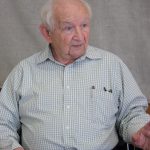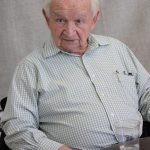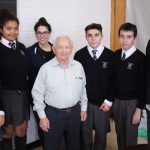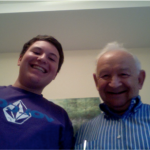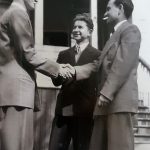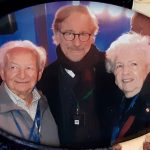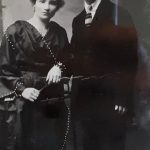Howard Chandler was born December 5, 1928, in Wierzbnik-Starachowice, Poland. He grew up in the Poland of the 1930s, where the rights of minorities in the multiethnic country were supposed to be protected; in spite of this Howard remembers being bullied and the anti-Semitic taunts as a way of life at the time. Howard was just about 11 years old when the war broke out, and he was no longer allowed to attend school. He was subsequently moved into a ghetto, living in crowded conditions with many other families. One day he noticed a new group of German soldiers were around, and it was at this time that the ghetto was liquidated. Howard and his father and brother were selected for work, but the rest of the family was taken away. Howard later learned that they were sent to Treblinka and were murdered. Howard did forced labour alongside his brother and father for the next two years, but when the Russian front drew closer, he was deported to Auschwitz in the summer of 1944. Howard would be there until January 1945, when the Nazis ordered the death marches to evacuate the camp. Howard ended up at Buchenwald from January to April 1945, when many of the prisoners were placed in open boxcars and sent on a meandering journey to Czechoslovakia, while the war closed in on both fronts. Howard and his brother were liberated by the Russians in Czechoslovakia, both of them in very bad shape. With the end of the war, he was taken to England, where he stayed for 2 years. He then decided to come to Canada where he has been ever since.
Howard was first interviewed by Crestwood student Michael Hochberg in April 2011. Howard visited Crestwood in November 2017, where he shared his story with a group of Grade 9-10 students. In June 2019 Mr. Masters and Arielle Meyer visited him in his home, alongside American researcher Emily Ann Putzke.
Videos
Click next video below to keep watching

